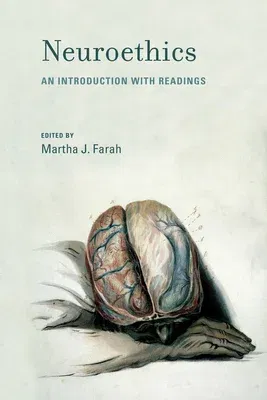Explores the ethical, legal, and societal issues arising from brain
imaging, psychopharmacology, and other new developments in
neuroscience.
Neuroscience increasingly allows us to explain, predict, and even
control aspects of human behavior. The ethical issues that arise from
these developments extend beyond the boundaries of conventional
bioethics into philosophy of mind, psychology, theology, public policy,
and the law. This broader set of concerns is the subject matter of
neuroethics. In this book, leading neuroscientist Martha Farah
introduces the reader to the key issues of neuroethics, placing them in
scientific and cultural context and presenting a carefully chosen set of
essays, articles, and excerpts from longer works that explore specific
problems in neuroethics from the perspectives of a diverse set of
authors. Included are writings by such leading scientists, philosophers,
and legal scholars as Carl Elliot, Joshua Greene, Steven Hyman, Peter
Kramer, and Elizabeth Phelps. Topics include the ethical dilemmas of
cognitive enhancement; issues of personality, memory and identity; the
ability of brain imaging to both persuade and reveal; the legal
implications of neuroscience; and the many ways in which neuroscience
challenges our conception of what it means to be a person.
Neuroethics is an essential guide to the most intellectually
challenging and socially significant issues at the interface of
neuroscience and society. Farah's clear writing and well-chosen readings
will be appreciated by scientist and humanist alike, and the inclusion
of questions for discussion in each section makes the book suitable for
classroom use.
Contributors
Zenab Amin, Ofek Bar-Ilan, Richard G. Boire, Philip Campbell, Turhan
Canli, Jonathan Cohen, Robert Cook-Degan, Lawrence H. Diller, Carl
Elliott, Martha J. Farah, Rod Flower, Kenneth R. Foster, Howard Gardner,
Michael Gazzaniga, Jeremy R. Gray, Henry Greely, Joshua Greene, John
Harris, Andrea S. Heberlein, Steven E. Hyman, Judy Iles, Eric Kandel,
Ronald C. Kessler, Patricia King, Adam J. Kolber, Peter D. Kramer,
Daniel D. Langleben, Steven Laureys, Stephen J. Morse, Nancey Murphy,
Eric Parens, Sidney Perkowitz, Elizabeth A. Phelps, President's Council
on Bioethics, Eric Racine, Barbara Sahakian, Laura A. Thomas, Paul M.
Thompson, Stacey A. Tovino, Paul Root Wolpe

